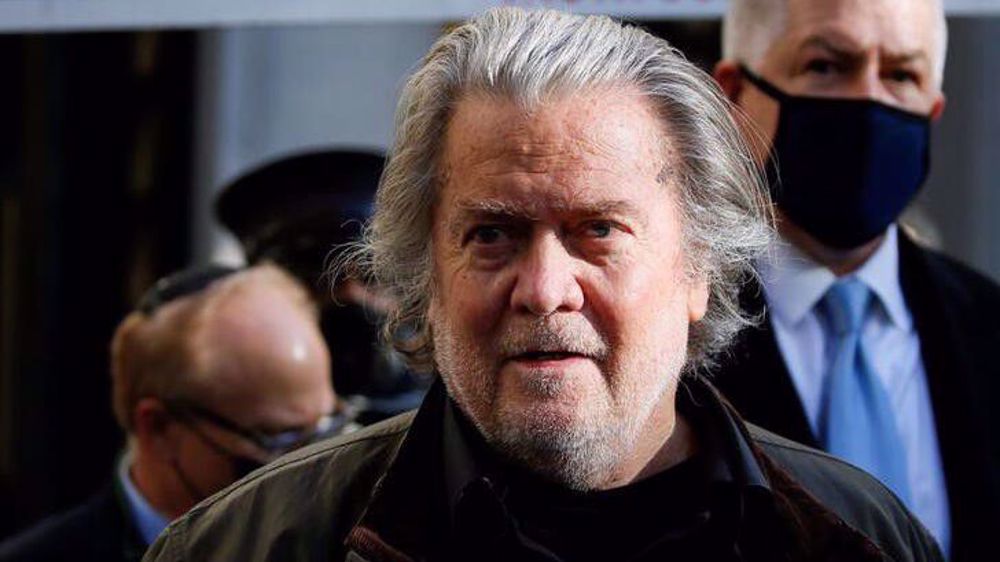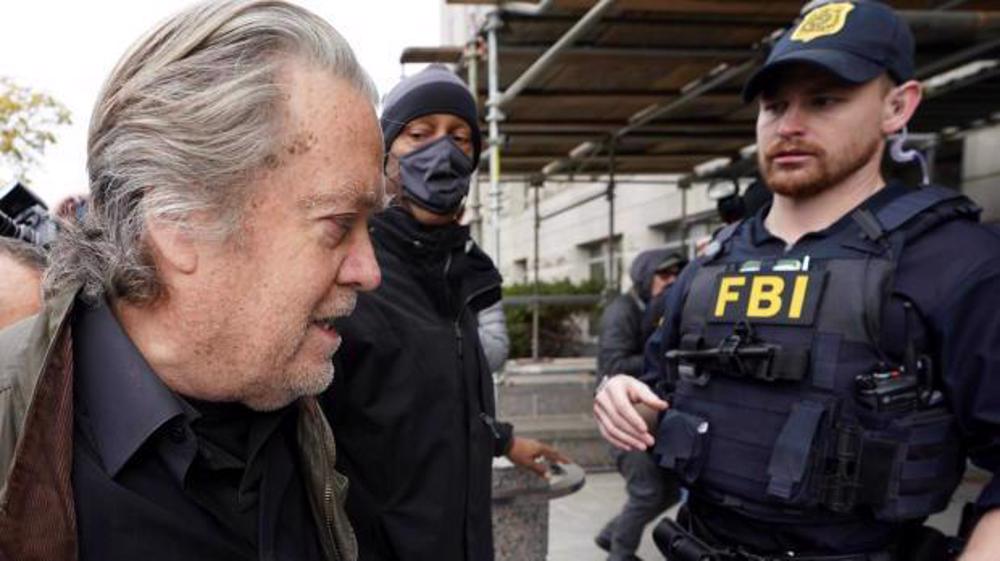Judge orders Justice Dept to hand over certain internal legal records to ex-Trump adviser Bannon
A US judge on Wednesday ordered the Justice Department to provide former President Donald Trump's adviser Steve Bannon access to certain sensitive internal legal opinions or other related records that could potentially help bolster his defense against criminal contempt of Congress charges.
US District Judge Carl Nichols told prosecutors they must produce "statements or writings reflecting official DOJ policy," including nonpublic opinions, that relate to "the department's policy on prosecuting or not prosecuting government or former government officials raising executive privilege claims or defenses of immunity."
Bannon, a prominent adviser to Trump, is facing criminal charges for defying a subpoena issued by a congressional committee investigating the Jan. 6, 2021, attack on the US Capitol. His trial is tentatively set to begin on July 18.
He has refused to provide testimony or documents, citing Trump's insistence that the material is protected under a legal doctrine called executive privilege.
As part of his defense, his attorneys hope to argue that Bannon relied on legal advice from his lawyer Robert Costello.
Costello previously advised Bannon that he could not testify or produce records to the House of Representatives Select Committee unless it brokered a deal with Trump or got a federal court to agree to waive executive privilege.
As part of his reasoning, Costello cited a number of prior legal opinions published publicly by the Justice Department's Office of Legal Counsel (OLC), which found that current and former executive branch officials were immune from congressional subpoenas.
During a roughly two-hour hearing on Wednesday, Nichols asked prosecutors skeptical questions about how they were able to rationalize charging Bannon with contempt, given the department had still never withdrawn its public OLC opinions.
"How are those consistent positions?," Nichols asked. "In other words, how can the department ... simultaneously say someone in that position has absolute immunity from showing up and can be prosecuted for failing to show up?"
Amanda Vaughan, one of the prosecutors in the case, said the department's prior OLC opinions are not relevant or analogous to the judge's example.
Although Nichols agreed to grant Bannon's team access to some internal DOJ records, he said he would deny its other requests to access sensitive materials such as testimony that the government provided to the grand jury.
Releasing such records, he said, would be a "serious step" and he did not think Bannon's lawyers made a strong argument for why it would be material to their defense.
(Source: Reuters)
Suicides among Israeli forces surge amid Gaza war
Gen. Soleimani turned threats into opportunities and fortified resistance axis
Houthi: General Soleimani thwarted US conspiracies in West Asia
Islamic Jihad prevents Israeli captive from taking own life
Pezeshkian: We will continue path of Gen. Soleimani with power
Israel forces make incursion into Lebanese town, torch homes
Israeli settlers raid al-Aqsa Mosque amid restrictions on Muslims
President Deby: French troops will leave Chad by end of January












 This makes it easy to access the Press TV website
This makes it easy to access the Press TV website